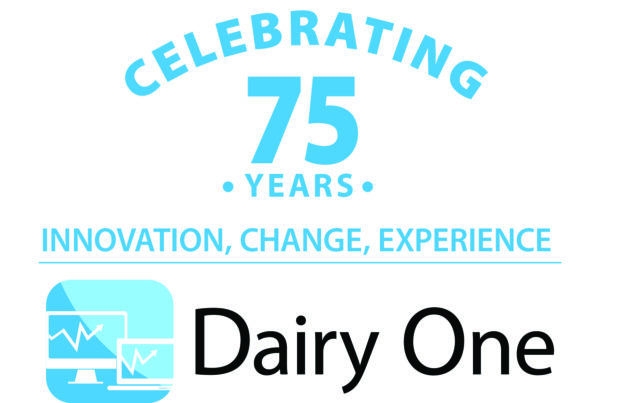As this cycle of inflation progresses and wages finally catch up so the average Joe can afford to go to town every now and again, guess what? Now everyone will be in a higher income tax bracket. That means WE will be paying a higher percentage of what we have earned as income taxes than before oil went through the roof and started this mess. If the dollar loses half its value by the time the inflationary cycle catches wages up, a $40,000 per year lifestyle will now cost closer to $90,000 per year to maintain because of the higher percentage of taxes to be paid.
The IRS has never and will never adjust the tax rates down to account for inflation. What makes it worse is that Congress does not give a rip about inflation because it gives them more money to squander. If inflation were to be curtailed most of the common people would be able to live with some financial stability. But that would prevent those in control from being able to spend a dollar that is worth fifty cents before they help it to become worth twenty-five cents. To curtail inflation would require a good number of those in control of the value of the dollar to have to get a job and add to the gross national product to be able to eat, just like the rest of us.
With that said, the reality of the projected price of hay for the 2008 crop at well over $200 per ton is that it is being paid for with dollars that are really worth around fifty-cents each. Which means that in terms of the real value of a dollar, we are actually talking $110 to $125 per ton of hay. The problem is that it takes almost five of these fifty-cent dollars to buy a dollar’s worth of diesel. Is there anything that is stable?
My dad and I bought a lot of used cars from Vern Cooper who was a salesman for Dobbs Motors of Nampa, Idaho. Mom told us that we should have been in the car business ourselves. Vern would go so far as to excuse himself from another customer when he saw Dad on the lot looking at a car Vern knew something about. He would quickly tell Dad that he would be with him as soon as he could, and occasionally say, “You don’t want this car.”
One of my younger brothers observed Dad and I as we dealt with Vern. We would ask Vern a question about a car and get a straight answer. Vern taught us that a car with 80,000 highway miles on it was a better buy than a car of the same year with 20,000 town miles on it. Also that given the choice of two cars of the same year, to buy the one that had cost more when new. The reasoning being that the first owner, knowing that he had paid a pretty penny for it, had most likely taken good care of it. The cheaper car, as Vern saw it, was more prone to be treated and cared for like a piece of junk.
The downside of this is that my brother, when he was off to college, got the “bug” to trade cars. Unfortunately, he thought that all used car salesmen were like Vern Cooper. The only thing he had not been lied to about his new pride and joy was the color (it was black). Vern Cooper was more concerned about the cars he intended to sell us over the next 10 or 20 years than he was with the one we happened to be looking at on his lot on a particular day.
How do you buy hay and how do you sell hay? There are hay buyers who are just like Vern Cooper, and then there are hay buyers like the guy who sold my brother the black car. And across the table, there are hay growers who are just like Vern Cooper and some like the guy who sold my brother the black car. In years like we are living in right now, it really does not make sense to change who you are dealing with if who you have been dealing with has always given you a straight answer. And if the money for hay sold has been good (not the top dollar, but that the checks arrive close to on time and don’t bounce).
And from the other side of the table, has the hay sold been as represented? Or have there been “surprises” in the middle of the stack? If we have “Vern Cooper” the hay buyer dealing with “Vern Cooper” the hay grower, rest assured that the buyer you have been selling to for several years wants your hay next year, too. Which means he is going to do all he can to get you the most money possible for your hay. And remember it is always easier to buy hay than to sell it at a price so that everyone involved makes some money.
One grower told an exporter, “I know my fields and I know my hay. When I get some hay in the bale or in the stack that is export quality I will call you. I will not insult you nor chance tarnishing my reputation by selling hay to you that I know full well will cause problems for your end user. Everything else I grow I will sell to those who know what it is and can make it work for what they are doing” (kind of like a breath of fresh air).
Years back at a café, I overheard a conversation about a totally different kind of hay grower. The fellow talking said that he was a little boy with his father when they stopped to see a hay grower. He said he asked his father why the grower stacked one load of hay from right next to the haystack and then disappeared for a long time before he came with the next load.
His dad told him that the grower took good care of the field by the road, near the haystack, but that he had a bigger field out of sight of the road that he did not take good care of, since no one ever saw it. Now that he was stacking the hay he was mixing the good hay with the poor hay in the same stack. The fellow telling the story concluded that the hay grower’s son did things the same way. Which is why he never sold hay to the same outfit two years in a row, and that nine out of 10 years he had hay for sale in April and May.
Some growers will occasionally have an accident and get some hay in the bale too wet or too dry. They do their best to stack this separate from the best hay and market it for what it really is. Some growers occasionally have an accident and get some hay in the bale that is just about perfect. Problem is that they don’t remember how they did it.
So how do you handle the wild ride? Do the best you can do. Deal with others so that they want to do business with you again. Be consistent. What does it mean to be consistent? Years back a fellow returned home to find his Oldsmobile parked in the driveway with the front end of it rather mangled.
His 17-year-old son had been distracted by an attempt to change the radio station by one of his five passengers and had rear-ended a pick-up. The pick-up was not damaged. In fact the pick-up he hit helped him drag the Olds home. His friends were concerned that the driver’s dad was going to kill him.
“My dad,” he said to his friends, “will not be happy about this, but my dad will not even raise his voice!”
Are those you deal with as confident in the manner of business you conduct and the quality of hay you produce as was the 17-year-old of his father’s temperament? FG










